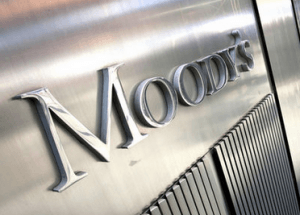Moody’s downgrades Nigeria’s sovereign issuer rating to B1 from Ba3
 Nigeria’s struggling economy has been given yet another punch with a downgrade.
Nigeria’s struggling economy has been given yet another punch with a downgrade.
Rating agency, Moody’s Friday April 29, 2016 downgraded Nigeria’s long-term issuer ratings to B1 from Ba3 and has assigned a stable outlook, concluding the review for downgrade initiated on March 4, 2016, the agency announced.
Among others, the key drivers of the rating action are as follows: Increased external vulnerability brought about by the prospect of lower-for-longer oil prices; Execution risk in the transition to a less oil-dependent federal budget, and the implications for the government’s balance sheet should it not achieve its aims; An elevated interest burden over the next two years while the government grows its non-oil tax receipts.
Moody’s noted that the stable outlook reflects the fact that Nigeria’s credit fundamentals will continue to compare favorably with peers at the B1 level, despite the likely further deterioration in the country’s credit metrics due to the oil price shock.
Concurrently, Moody’s also lowered Nigeria’s long-term foreign-currency bond ceiling to Ba3 from Ba2, the long-term foreign-currency deposit ceiling to B2 from B1, and the long-term local-currency bond and deposit ceilings to Ba1 from Baa3.
According to Moody’s, the first driver of the rating action is Nigeria’s increased external vulnerability.
“Assessed against Moody’s scenario of lower-for-longer oil prices, Nigeria’s external accounts have come under more pressure than expected since our rating affirmation in December 2015,” it said.
Nigeria registered a balance of payments deficit of 1.4 per cent of GDP at the end of 2015, owing largely to its first current account deficit (3 per cent of GDP) in over a
decade.
As a result, foreign currency reserves dropped by $6 billion to $28.4 billion last December and as of April 4, foreign exchange reserves were lower still at $27.7 billion.
Moody’s indicates that, it takes note of the fact that the government’s policy response alleviated some of the external pressures: the Ministry of Finance adjusted the budget further, while the central bank devalued the currency to NGN197 to the US dollar and imposed foreign currency restrictions and soft capital controls.
“However,” Moody’s states, “the central bank’s measures have also hampered economic activity as a number of sectors rely on access to foreign exchange for their ongoing operations.”
Adding that, “should oil prices remain low, pressure on the exchange rate is likely to continue, evidenced by the persistence of a parallel market for dollars.”
Moody’s argues further that although the government says the soft capital controls are temporary, they have nonetheless deterred foreign investment — foreign direct investment inflows halved from 2014-15 while portfolio net investments have fallen by a multiple of 5 since 2013, from $13.6 billion to $2.5 billion in 2015.
“We still forecast a moderate current account deficit in 2016 of 2.3 per cent of GDP and a likely further decrease in foreign exchange reserves to $25 billion.
The agency further notes that reserves could be supported by government external concessional borrowing in excess of $4.5 billion in 2016, which would imply that reserves would provide four to five months of import cover.
“Pressure on the exchange rate is likely to continue until the mismatch between the supply of and demand for dollars is resolved, either through a devaluation or a strengthening of foreign exchange reserves or through an accumulation of fiscal surpluses,” it said, adding that, “when finalized, the currency swap currently discussed with China will provide yuan liquidity and alleviate some of the pressure, with China being the source for one third of Nigeria’s non-oil merchandise imports in 2015.”
By Emmanuel K. Dogbevi
